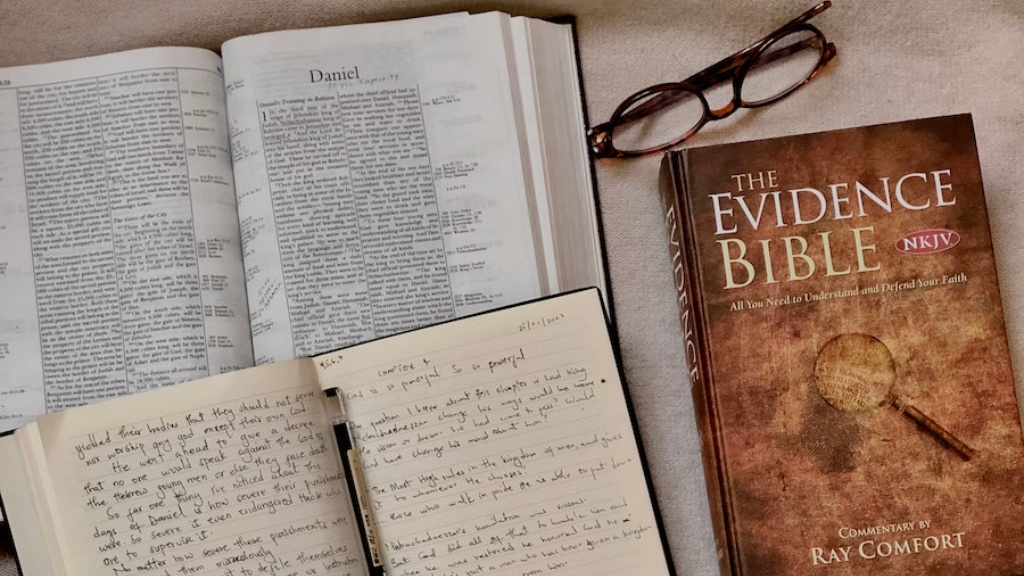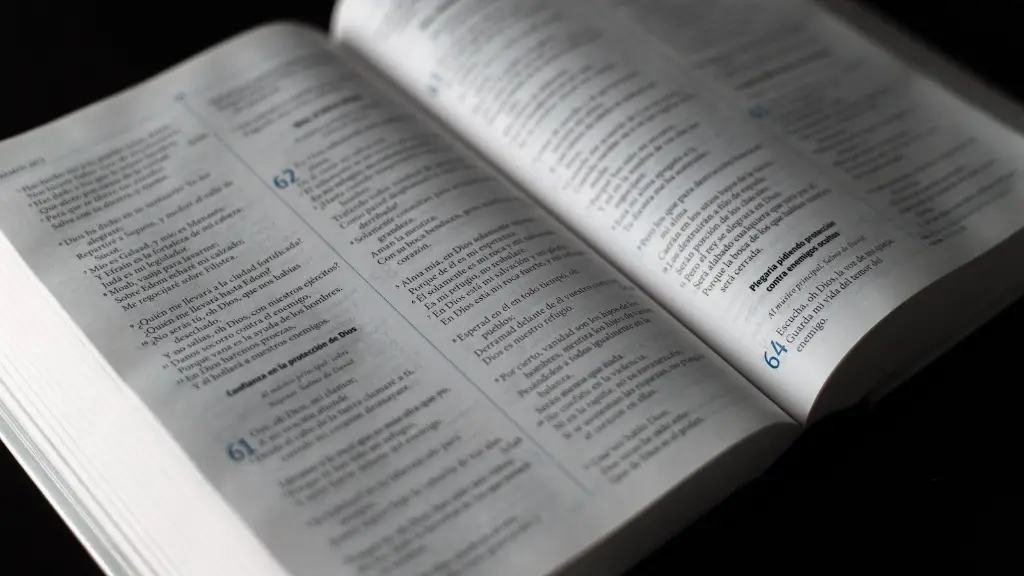What Is The Bible?
The Bible is a compilation of ancient writings and texts which are largely accepted as literature divinely inspired by the Judeo-Christian God. It is a diverse collection of stories, advice, wisdom and moral guidance, though its original intent varies throughout the books. Historians estimate that the earliest of the Bible’s books were initially written as early as the 12th century BCE while the latest were written in the 1st century CE. In general, the Bible is thought to contain multiple primary authors, each of whom penned distinct books in different time periods with differing perspectives. The books included vary by tradition, with Protestant Bibles containing 66 books, Catholic Bibles containing 73 books and Jewish Bibles containing 39 books.
Why Read The Bible?
The Bible serves as a moral and spiritual compass for those that believe in its words, helping to guide decision making and shape personal beliefs. It can also be used to reflect on concepts such as mercy, love, justice, and more. The Bible often provides stories of lessons learned and how to navigate difficult life moments. It is also a source of solace, comfort, and strength. Many readers find comfort in the words of the Bible and its stories.
How To Begin Reading The Bible
It can be intimidating to know where to begin reading the Bible. Whether one is a beginner or an experienced reader, a sense of purpose and approach can be helpful. Many readers opt to begin with a book known as “Proverbs” in the Old Testament, as it contains words of wisdom, advice, and reflections. This book is known for inspiring readers to treat others with respect, work hard and wisely, and to speak honestly and with thought. It can be inspiring for readers to reflect on the words Proverbs have to offer.
Timeless stories, lyrics and parables can be found in the New Testament. “The Gospel of Luke” is a popular starting point for readers, as it tells of Jesus’ travels, parables, and miracles. It is full of reflections on faith, compassion, and sacrifice.
Understand Context
Contextual understanding of the writing of the Bible can help readers understand the deeper meanings in its verses. For example, recognizing the political climate of the time period in which the text was written can provide insight into how the people around the writer may have responded to its teachings. Additionally, understanding pivotal moments in the lives of authors, such as Moses’ experiences with the Ten Commandments, can provide clues to unlock biblical meaning.
Choose A Translation
Different translations can create different nuances in the interpretation of the Bible. It can be helpful to answer key questions about one’s own preferences before beginning a read in order to choose the translation best suited to their interests. Are the stories told in a modern vernacular that is engaging? Are complex verses easily deciphered? Does the translation infuse the text with new meaning or alter the original intent? Some readers might prefer a translation that adheres to the language of original scriptures while others may opt for one that simplifies the texts.
Reflect on What You Read
One of the most important aspects of Bible reading is to reflect on what has been read. Taking the time to think through the words, ask questions, and meditate on the messages of the text can be significant for Bible readers. Writing down thoughts about what was learned or retelling a story in one’s own words can be an effective way to further engage with the Bible. Discussions with others and the sharing of interpretations can also be useful for developing understanding.
Take Breaks
At times, readers may find themselves rereading the same verses as understanding may be slow. Taking a break from reading can help to come back to the text with a refreshed perspective. Additionally, returning to the text after certain periods of time can bring new insights and ideas.
Questions To Ask Yourself When Reading The Bible
Do I Feel Connected To What I’m Reading?
Connecting with the text can be aided through context-based research and analysis. Understanding the historical, political and cultural context can add meaning and allow readers to identify better with what’s being discussed.
Who Is Speaking And Why?
Understanding who is transitioning the message within the bible can add value to the reader’s interpretation. Who is the author, who is speaking and why? Is the speaker politically charged or withstanding religious persecution? Is the language of the text poetic? Knowing the why behind the words can open up new ways of interpreting stories.
What Stands Out For Me?
Everyone perceives and experiences scriptures differently. Identifying what stands out for the reader can provide focus for further research. Is there a Bible story that resonates? Is a reflection particularly thought-provoking? Noting one’s own responses and reactions to the texts can help to draw out further meaning.
What Questions Would I Ask If I Could Speak To the Author?
Asking the author questions can open up further exploration. What were they feeling at the moment of writing? What was their overall message? Drawing out the desired essence of the text can provide invaluable insight.
What Life Lessons Can I Learn?
The Bible can be used as a source of learning, offering advice and reflections on complex topics. Taking the time to synthesize what has been read can bring forth understanding and perspective. Are there life lessons buried in the text? What principle or truth can be gleaned from the scriptures?
What Are My Greatest Insights?
In the end, taking personal insights from the Bible can add depth and value to the experience. Reviewing what has been read and writing out key observations can shape personal beliefs and inform decisions. What potential insight do the words of the Bible bring? How can it be applied to one’s life today?



